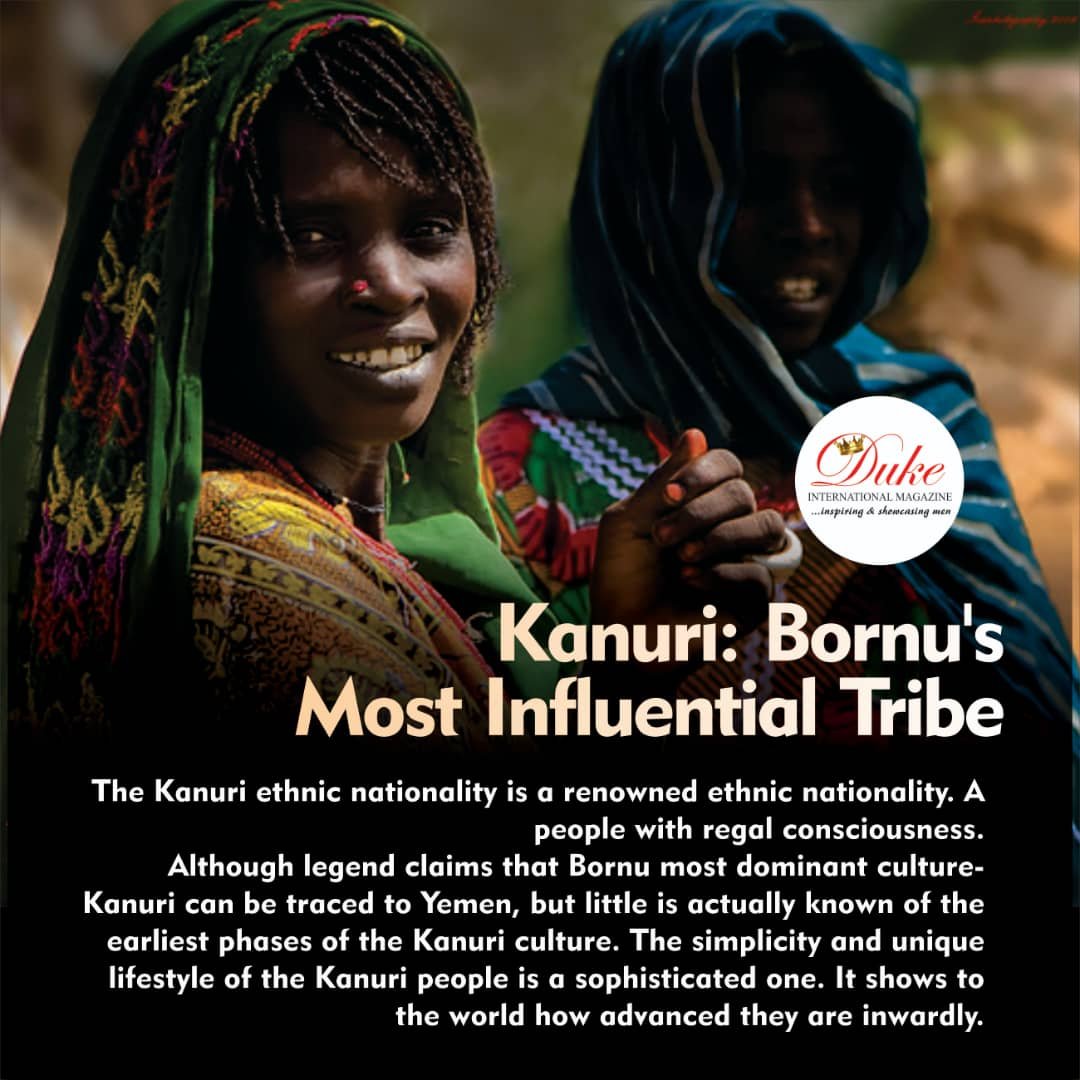The Kanuri ethnic nationality is a renowned ethnic nationality. A people with regal consciousness.
Although legend claims that Bornu most dominant culture- Kanuri can be traced to Yemen, but little is actually known of the earliest phases of the Kanuri culture. The simplicity and unique lifestyle of the Kanuri people is a sophisticated one. It shows to the world how advanced they are inwardly.
Origin
Modern-day Kanuri are the descendants of the Sayfawa Dynasty of the Kanem Empire.
As a result of civil war, rebellion and outright invasion by the Bulala, the Kanuri people were forced out of Kanem in the 14th century and after nearly ten decades of bitter conflict, the Kanuri established a new empire at the southwest of Lake Chad.
Today, the majority of the Kanuri live in the Borno province of North Eastern Nigeria, where they are the dominant group.
This empire was and is known as Bornu. They are also located in the countries of Niger, Chad, and Cameroon.
Culture
The Kanuri people can be said to be the most respected people in the Northern part of Nigeria. They value well their culture.
Kanuri women are distinctively superb when it comes to caring. Their hairstyle and tattoo which is known as lalle in hausa language can only be described as ‘Epic’.
Chiefly, a Kanuri man prides himself high; and this makes him despised by other Northerners. They rarely beg. From the sweat their brows they source their bread.
Religion
The Kanuri became Muslims in the 11th century when Kanem became a centre of Muslim learning, and this fate they have attached to till date. Identically, they are Sunni Muslims.
Language
The kanuri people speak the Kanuri language. The language consists of two main dialects namely:
Manga Kanuri and Yerwa Kanuri (it is also known as beri beri)
Kanuri is a dialect spoken by some four million people as of 1987; in Nigeria, Niger, Chad and Cameroon as well as small minorities in southern Libya and by a diaspora in Sudan.
Kanuri is the language associated with the Kanem and Bornu empires which dominated the Lake Chad region for a thousand years.
Marriage
The Kanuri traditional marriage rites are very simple and in accordance with Islamic injunctions to express ‘love’ between the couple. Reverence for the ‘waliyyi’, the giver, who could be her father or guardian is expressed.
Observance of ‘sadau’, which is the dowry; ‘sigga’, the act of asking and acceptance between the family of the bride and groom; and their witnesses.
The minimum dowry in Kanuri marriage is a quarter of a dinar. So if a dinar costs N10,000 , the dowry will be about N2,500, which can be said to be cheap.
Food
The main food for the Kanuri people are millet in soups or rice, and corn. Kanuri people do a little hunting for the purpose of providing food (meat). They herd cattle for beef. Kanuri people also harvest leaves and fruit to eat.

